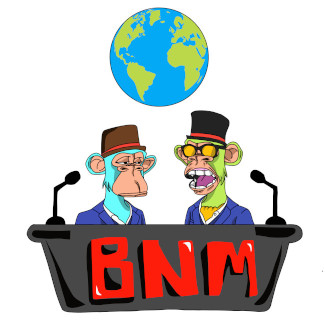News
Bitcoin Core Announces New Security Disclosure Policy
Published
5 days agoon
By
admin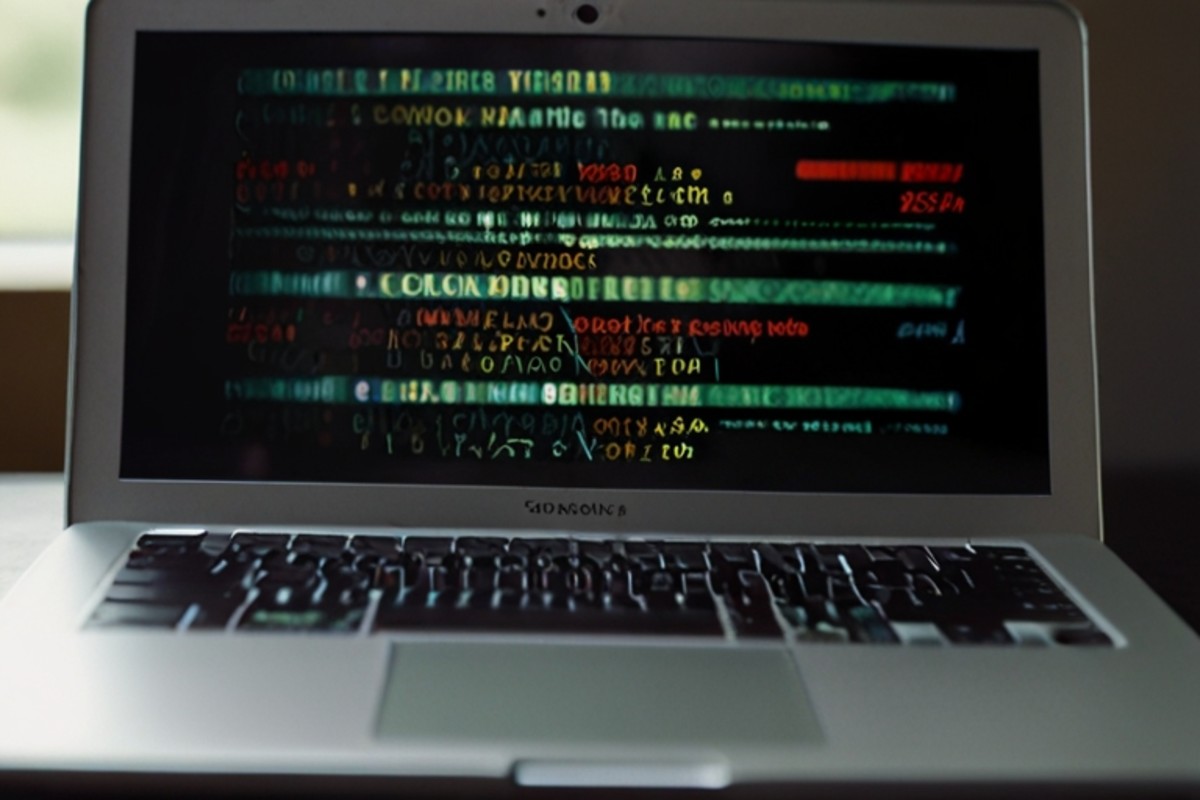

A group of Bitcoin Core developers has introduced a comprehensive security disclosure policy to address past shortcomings in publicizing security-critical bugs.
This new policy aims to establish a standardized process for reporting and disclosing vulnerabilities, thereby improving transparency and security within the Bitcoin ecosystem.
Several previously undisclosed vulnerabilities are also included with the announcement.
What is a Security Disclosure?
A security disclosure is a process through which security researchers or ethical hackers report vulnerabilities they discover in software or systems to the affected organization. The goal is to allow the organization to address these vulnerabilities before they can be exploited by malicious actors. This process typically involves discovering the vulnerability, reporting it confidentially, verifying its existence, developing a fix, and finally, publicly disclosing the vulnerability along with details and mitigation advice.
Should Users Be Worried?
The latest Bitcoin Core security disclosures address various vulnerabilities with varying severity. Key issues include multiple denial-of-service (DoS) vulnerabilities that could cause service disruptions, a remote code execution (RCE) flaw in the miniUPnPc library, transaction handling bugs that could lead to censorship or improper orphan transaction management, and network vulnerabilities such as buffer blowup and timestamp overflow leading to network splits.
It is not believed any of those vulnerabilities currently present a critical risk for the Bitcoin network. Regardless, users are strongly encouraged to ensure their software is up to date.
For detailed information, see the commits on GitHub: Bitcoin Core Security Disclosures.
Improving the disclosure process
Bitcoin Core’s new policy categorizes vulnerabilities into four severity levels: Low, Medium, High, and Critical.
- Low severity: Bugs that are difficult to exploit or have minimal impact. These will be disclosed two weeks after a fix is released.
- Medium and High severity: Bugs with significant impact or moderate ease of exploitation. These will be disclosed a year after the last affected release goes end-of-life (EOL).
- Critical severity: Bugs that threaten the entire network’s integrity, such as inflation or coin theft vulnerabilities, will be handled with ad-hoc procedures due to their severe nature.
This policy aims to provide consistent tracking and standardized disclosure processes, encouraging responsible reporting and allowing the community to address issues promptly.
History of CVE Disclosures in Bitcoin
Bitcoin has experienced several notable security issues, known as CVEs (Common Vulnerabilities and Exposures), over the years. These incidents highlight the importance of vigilant security practices and timely updates. Here are some key examples:
CVE-2012-2459: This critical bug could cause network problems by allowing attackers to create invalid blocks that looked valid, potentially splitting the Bitcoin network temporarily. It was fixed in Bitcoin Core version 0.6.1 and motivated further improvements in Bitcoin’s security protocols.
CVE-2018-17144: A critical bug that could have allowed attackers to create extra Bitcoins, violating the fixed supply principle. This issue was discovered and fixed in September 2018. Users needed to update their software to avoid potential exploitation
Additionally, the Bitcoin community has discussed various other vulnerabilities and potential fixes that have not yet been implemented.
CVE-2013-2292: By creating blocks that take a very long time to verify, an attacker could significantly slow down the network.
CVE-2017-12842: This vulnerability can trick lightweight Bitcoin wallets into thinking they received a payment when they hadn’t. This is risky for SPV (Simplified Payment Verification) clients.
The conversation around these vulnerabilities underscores the ongoing need for coordinated and community-supported updates to Bitcoin’s protocol. Ongoing research around the idea of a consensus cleanup soft fork seeks to address latent vulnerabilities in a unified and efficient manner, ensuring the continued robustness and security of the Bitcoin network.
Maintaining software security is a dynamic process requiring ongoing vigilance and updates. This intersects with the broader debate on Bitcoin ossification—where the core protocol remains unchanged to maintain stability and trust. While some advocate for minimal changes to avoid risks, others argue that occasional updates are necessary to enhance security and functionality.
This new disclosure policy by Bitcoin Core is a step towards balancing these perspectives by ensuring that any necessary updates are well-communicated and managed responsibly.
Source link
You may like


Republican National Committee Endorses Pro-Bitcoin Platform in Party Draft


BC.GAME Announces the Partnership with Leicester City and New $BC Token!


What’s the best new crypto in 2024?


Bitcoin Mining Difficulty Crashes 5% To Lowest Level In 3 Months, What Happens Next?


Bitcoin (BTC) Price, Volume Contrasts In Fight For Rebound


The German Government Is Selling More Bitcoin – $28 Million Moves to Exchanges
Bitcoin
Republican National Committee Endorses Pro-Bitcoin Platform in Party Draft
Published
57 mins agoon
July 8, 2024By
admin

Today, a Republican National Committee panel approved a draft of its 2024 party platform, that strongly supports Bitcoin.
On page nine, the draft explicitly states, “We will defend the right to mine Bitcoin, and ensure every American has the right to self-custody of their digital assets, and transact free from Government Surveillance and Control.”
JUST IN: 🇺🇸 Republican National Committee panel passes draft of party platform, pledging to "defend the right to mine #Bitcoin" and protect self custody. pic.twitter.com/CnH8nMOuUO
— Bitcoin Magazine (@BitcoinMagazine) July 8, 2024
Additionally, it promises to end what it calls the Democrats’ “unlawful and unAmerican Crypto crackdown” and opposes the creation of a Central Bank Digital Currency (CBDC). According to The Hill, the platform committee overwhelmingly approved the new draft and it will face a final vote on Tuesday.
This decision further marks a clear stance by the Republican party in favor of Bitcoin and cryptocurrency innovation, positioning itself against the current unwelcoming stance by the Biden Administration and Democrats.
The draft reflects the growing interest and advocacy for protecting and supporting Bitcoin within the party, aligning with broader trends of Bitcoin adoption and support among various Republican politicians. In May, Donald Trump said he “will ensure that the future of crypto and Bitcoin will be made in the USA.”
The full approved draft can be read here:
View the original article to see embedded media.
Source link
bitcoin exchanges
The German Government Is Selling More Bitcoin – $28 Million Moves to Exchanges
Published
6 hours agoon
July 8, 2024By
admin

The German government continued shifting portions of its massive Bitcoin trove to exchanges on Monday, transferring over $56 million worth across multiple transactions.
According to blockchain data, addresses linked to the German government moved a total of 500 BTC to Bitstamp and Coinbase (250 BTC each), worth about $27.9 million, at 14:48 UTC+8 today, and transferred 500 BTC to an unmarked address.
JUST IN: 🇩🇪 German Government sends another 1,000 #Bitcoin worth $56 million to exchanges 👀 pic.twitter.com/zsxg3q2tkV
— Bitcoin Magazine (@BitcoinMagazine) July 8, 2024
Germany originally seized nearly 50,000 Bitcoin back in 2013 from the operators of the now-defunct piracy website Movie2K. The stash is estimated to be worth around $2.3 billion at today’s prices.
This comes after the government shifted around $390 million in Bitcoin to various platforms since mid-June.
The steady flow of transfers to exchanges signals Germany’s potential intentions to liquidate parts of its reserves. While reasons remain uncertain, the sales have fueled volatility in Bitcoin’s price, which dipped below $55,000 last week.
However, the amounts shifted so far equate to a relatively small portion of Germany’s massive holdings. After the latest transactions, the government still possesses around 40,000 bitcoins valued at nearly $2.2 billion.
Nonetheless, the remaining reserves represent a significant share of daily Bitcoin trading volumes. As such, experts caution the threat of further turbulence lingers as long as Germany stays active in reducing exposure.
The liquidations come just as long-awaited creditor payouts from Mt. Gox’s 2014 collapse appear set to begin. This timing might compound selling pressure on Bitcoin amid an already bearish macro environment.
Source link
Altcoins
Justin Sun Says TRON Team Designing New Gas-Free Stablecoin Transfer Solution
Published
7 hours agoon
July 8, 2024By
admin
Justin Sun has announced that developers are now working on a stablecoin transfer solution that can function without gas fees on the TRON (TRX) network.
The crypto billionaire says the new service is set to roll out later this year, initially on TRON before expanding to Ethereum (ETH) and other EVM-compatible chains.
“Our team is developing a new solution that enables gas-free stablecoin transfers. In other words, transfers can be made without paying any gas tokens, with the fees being entirely covered by the stablecoins themselves.
This innovation will first be implemented on the Tron blockchain and later support Ethereum and all EVM-compatible public chains.
We anticipate launching this service in Q4 of this year. I believe that similar services will greatly facilitate large companies in deploying stablecoin services on the blockchain, elevating blockchain mass adoption to a new level.”
At time of writing, it’s unclear how the new service will be able to operate without gas fees.
Last month, market intelligence firm Lookonchain reported that the 24-hour trading volume of Tether’s USDT on TRON stood at $53 billion while payment giant Visa’s was only at $42 billion.
“The 24-hour trading volume of USDT on TRON Network is $53 billion, exceeding Visa’s average daily trading volume. Visa’s trading volume in Q1 2024 was $3.78 trillion and the average daily trading volume was $42 billion.”
Don’t Miss a Beat – Subscribe to get email alerts delivered directly to your inbox
Check Price Action
Follow us on X, Facebook and Telegram
Surf The Daily Hodl Mix
 

Disclaimer: Opinions expressed at The Daily Hodl are not investment advice. Investors should do their due diligence before making any high-risk investments in Bitcoin, cryptocurrency or digital assets. Please be advised that your transfers and trades are at your own risk, and any losses you may incur are your responsibility. The Daily Hodl does not recommend the buying or selling of any cryptocurrencies or digital assets, nor is The Daily Hodl an investment advisor. Please note that The Daily Hodl participates in affiliate marketing.
Generated Image: DALLE3
Source link

Republican National Committee Endorses Pro-Bitcoin Platform in Party Draft
BC.GAME Announces the Partnership with Leicester City and New $BC Token!

What’s the best new crypto in 2024?

Bitcoin Mining Difficulty Crashes 5% To Lowest Level In 3 Months, What Happens Next?
Bitcoin (BTC) Price, Volume Contrasts In Fight For Rebound

The German Government Is Selling More Bitcoin – $28 Million Moves to Exchanges
BC.GAME Announces the Partnership with Leicester City and New $BC Token!

Justin Sun Says TRON Team Designing New Gas-Free Stablecoin Transfer Solution

Mt. Gox is a ‘thorn in Bitcoin’s side,’ analyst says

XRP Eyes Recovery Amid Massive Accumulation, What’s Next?

Germany Moves Another $28 Million in Bitcoin to Bitstamp, Coinbase

'Asia's MicroStrategy' Metaplanet Buys Another ¥400 Million Worth of Bitcoin

BlackRock’s BUIDL adds over $5m in a week despite market turbulence

Binance To Delist All Spot Pairs Of These Major Crypto

German Government Sill Holds 39,826 BTC, Blockchain Data Show

Bitcoin Dropped Below 2017 All-Time-High but Could Sellers be Getting Exhausted? – Blockchain News, Opinion, TV and Jobs

What does the Coinbase Premium Gap Tell us about Investor Activity? – Blockchain News, Opinion, TV and Jobs
BNM DAO Token Airdrop
A String of 200 ‘Sleeping Bitcoins’ From 2010 Worth $4.27 Million Moved on Friday

NFT Sector Keeps Developing – Number of Unique Ethereum NFT Traders Surged 276% in 2022 – Blockchain News, Opinion, TV and Jobs
New Minting Services

Block News Media Live Stream

SEC’s Chairman Gensler Takes Aggressive Stance on Tokens – Blockchain News, Opinion, TV and Jobs

Friends or Enemies? – Blockchain News, Opinion, TV and Jobs

Enjoy frictionless crypto purchases with Apple Pay and Google Pay | by Jim | @blockchain | Jun, 2022

How Web3 can prevent Hollywood strikes

Block News Media Live Stream

Block News Media Live Stream

Block News Media Live Stream

XRP Explodes With 1,300% Surge In Trading Volume As crypto Exchanges Jump On Board
Trending

 Altcoins2 years ago
Altcoins2 years agoBitcoin Dropped Below 2017 All-Time-High but Could Sellers be Getting Exhausted? – Blockchain News, Opinion, TV and Jobs
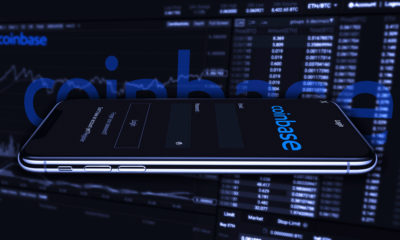
 Binance2 years ago
Binance2 years agoWhat does the Coinbase Premium Gap Tell us about Investor Activity? – Blockchain News, Opinion, TV and Jobs
- Uncategorized3 years ago
BNM DAO Token Airdrop

 Bitcoin miners2 years ago
Bitcoin miners2 years agoA String of 200 ‘Sleeping Bitcoins’ From 2010 Worth $4.27 Million Moved on Friday
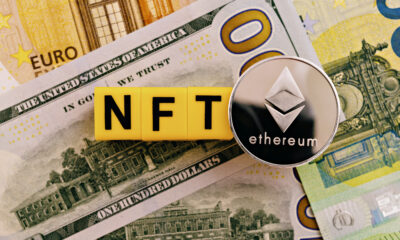
 BTC1 year ago
BTC1 year agoNFT Sector Keeps Developing – Number of Unique Ethereum NFT Traders Surged 276% in 2022 – Blockchain News, Opinion, TV and Jobs
- Uncategorized3 years ago
New Minting Services

 Video2 years ago
Video2 years agoBlock News Media Live Stream
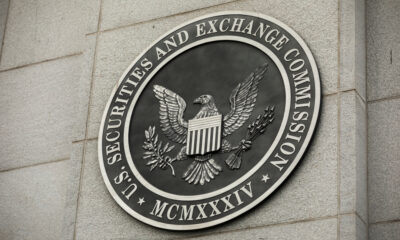
 Bitcoin1 year ago
Bitcoin1 year agoSEC’s Chairman Gensler Takes Aggressive Stance on Tokens – Blockchain News, Opinion, TV and Jobs
